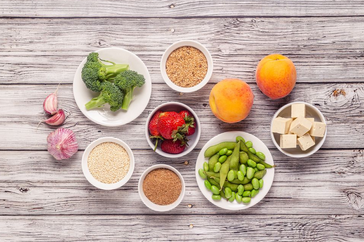
Breastfeeding is a natural and beautiful way to nourish your baby, but it can also be challenging for new mothers. From ensuring the right latch to managing discomfort, there are many aspects to learn as you embark on this rewarding journey. If you are a new mom wondering how to make breastfeeding easier, this article provides essential breastfeeding tips and tricks to help you succeed. Whether you’re struggling with supply issues, nipple pain, or simply need advice on how to feel more comfortable, these tips will guide you through the process and set you up for breastfeeding success.
Understanding the Basics of Breastfeeding
Breastfeeding is not only the most natural way to feed your baby, but it also provides a range of health benefits for both mother and child. For newborns, breast milk contains the perfect combination of nutrients, antibodies, and enzymes to support growth and development. Additionally, breastfeeding helps establish a strong bond between mother and baby.
However, breastfeeding can take some practice, especially in the beginning. It’s important to be patient with yourself and your baby as you both learn the ropes. Many new moms face challenges, such as latching issues, nipple pain, or concerns about milk supply. Understanding the basics of breastfeeding can help alleviate some of these concerns and set realistic expectations.
Step 1: Get the Latch Right
One of the most common difficulties new mothers face is ensuring that their baby is latching correctly. A poor latch can lead to discomfort, nipple soreness, and inefficient feeding. Ensuring a good latch from the start is one of the most important breastfeeding tips and tricks to keep in mind.
Subheading: How to Achieve a Proper Latch
- Positioning: Hold your baby close to your body, with their head and body in a straight line. The baby should face your breast, with their mouth level to your nipple. Gently touch your nipple to their lips to encourage them to open their mouth wide.
- Wide Mouth: When the baby opens their mouth wide, bring them to your breast quickly so that their mouth covers the nipple and a good portion of the areola (the darker area around the nipple). Their lips should be flanged out, not tucked in.
- Signs of a Good Latch: A good latch should not hurt, though you may feel some initial discomfort as your baby begins to nurse. You should see your baby’s jaw moving as they suck, and you may hear swallowing sounds. If the latch feels painful or uncomfortable, gently break the suction by inserting your finger into the corner of your baby’s mouth and repositioning them.
Getting the latch right is crucial for successful breastfeeding, and it may take a few attempts to get it just right. If you experience persistent pain or difficulty with latching, don’t hesitate to consult a lactation consultant for personalized support.
Step 2: Manage Your Milk Supply
Some new mothers worry about having enough milk to feed their babies. Whether you’re concerned about low supply or dealing with an oversupply of milk, there are several things you can do to manage your milk production and ensure that your baby gets enough nourishment.
Subheading: Tips for Managing Milk Supply
- Feed Frequently: In the early weeks, try to breastfeed your baby every 2-3 hours, even if your baby doesn’t seem hungry. Frequent nursing helps establish and maintain milk supply. If you’re concerned about your milk supply, breastfeeding more often can stimulate your breasts to produce more milk.
- Pump or Express Milk: If you’re struggling with an oversupply, using a breast pump to express milk after feedings can help relieve engorgement and maintain a manageable supply. On the other hand, if you’re concerned about a low supply, pumping or hand-expressing milk after nursing sessions can help increase production.
- Stay Hydrated and Eat Well: Proper nutrition and hydration are essential for maintaining a healthy milk supply. Drink plenty of water throughout the day and eat a balanced diet that includes protein, healthy fats, and a variety of fruits and vegetables.
- Avoid Stress: Stress can negatively impact milk production, so it’s important to find ways to relax and take care of yourself. This could include deep breathing exercises, yoga, or finding time to rest whenever possible.
Breastfeeding is often a learning experience for both mother and baby. Some mothers may worry about having an inadequate supply of milk, but it’s important to remember that milk production is a dynamic process that can be adjusted over time with the right strategies.
Step 3: Take Care of Your Body
Breastfeeding can be physically demanding, especially in the early days when your body is still adjusting to the new routine. Taking care of your physical well-being is key to ensuring that you continue to enjoy the experience without feeling overwhelmed or fatigued.
Subheading: Self-Care Tips for New Moms
- Nipple Care: Nipple soreness is common during the early days of breastfeeding. Applying lanolin cream or nipple ointment after each feeding can help soothe irritation and prevent cracking. If you notice bleeding or severe pain, consult a lactation consultant or healthcare provider to ensure your latch is correct.
- Posture: Poor posture during breastfeeding can lead to back and shoulder pain. Make sure you’re sitting in a comfortable, supportive chair, and use pillows or cushions to help position your baby at the right height. Take breaks to stretch and move around to prevent strain.
- Rest When You Can: Although it can be hard to find time for rest when caring for a newborn, getting adequate sleep is essential for your health and well-being. Try to rest when your baby sleeps, even if it’s just for short intervals throughout the day.
- Stay Hydrated: Breastfeeding can make you feel thirsty, so drink plenty of water throughout the day. Keeping a water bottle nearby during nursing sessions can help remind you to hydrate.
Taking care of your own body will make the breastfeeding process more comfortable and sustainable. Remember, self-care is not only important for your own well-being, but it also helps you stay strong and able to care for your baby.
Breastfeeding is a beautiful and rewarding experience, but it can come with its own set of challenges. By following these breastfeeding tips and tricks, you can make the process smoother and more enjoyable for both you and your baby. Whether you’re learning to get the latch just right, managing your milk supply, or taking care of your own body, these strategies can help ensure a successful breastfeeding journey. Remember, every mother’s experience is unique, so it’s important to be patient with yourself and seek support when needed. With time, practice, and the right tools, you’ll find your rhythm and provide your baby with the nourishment they need to thrive.



